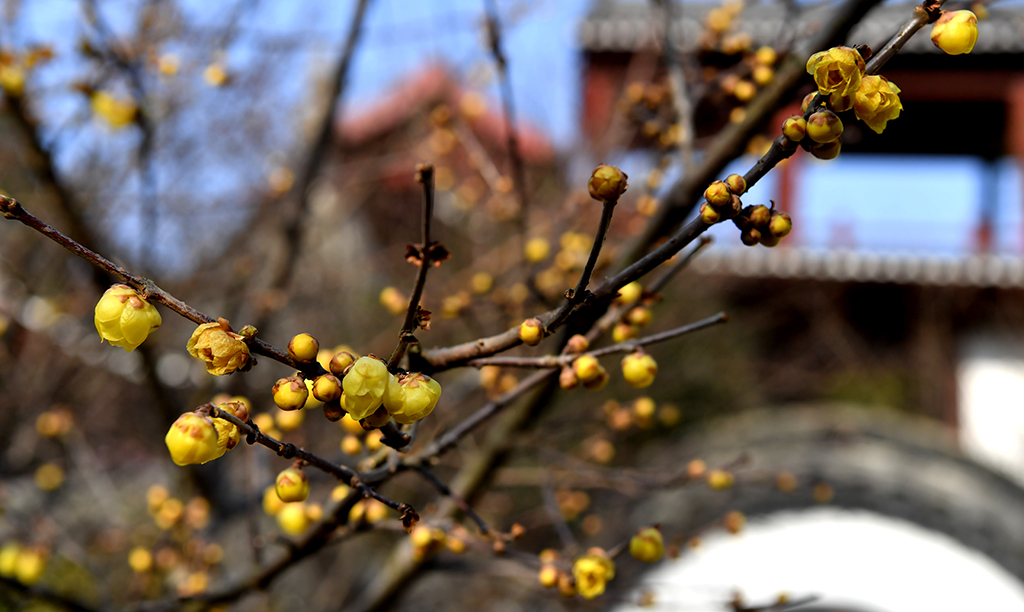Villagers take a green path to riches
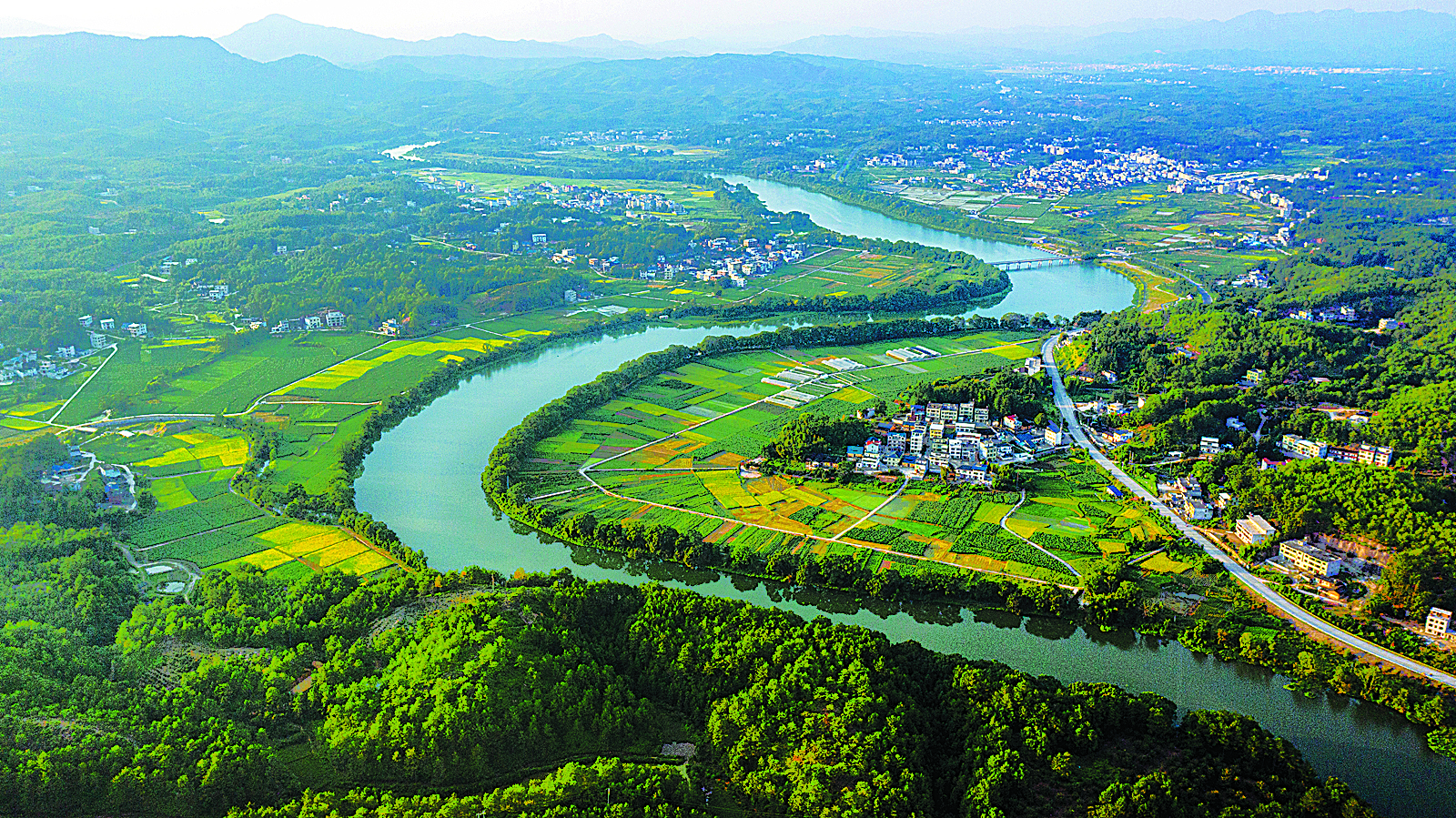
A photo taken last month shows a bird's-eye view of the Tingjiang River National Wetland Park in Changting. [Photo by QIU JIARUI/FOR CHINA DAILY]
Subsidies and direct action have helped to alleviate problems caused by water loss and soil erosion. Li Hongyang reports from Changting, Fujian, with Hu Meidong in Fuzhou.
The people of Changting county, in the eastern province of Fujian, used to live hard lives in the mountainous area that was plagued by water loss and soil erosion.
However, the county has recently had success in solving the problems.
So much so that the measures employed were included in a compendium of typical cases for the 15th meeting of the Conference of the Parties to the Convention on Biological Diversity, aka COP 15, held in Kunming, Yunnan province, in October.
Changting's residents have found a green path to riches by expending large amounts of time, energy and money to overcome their problems.
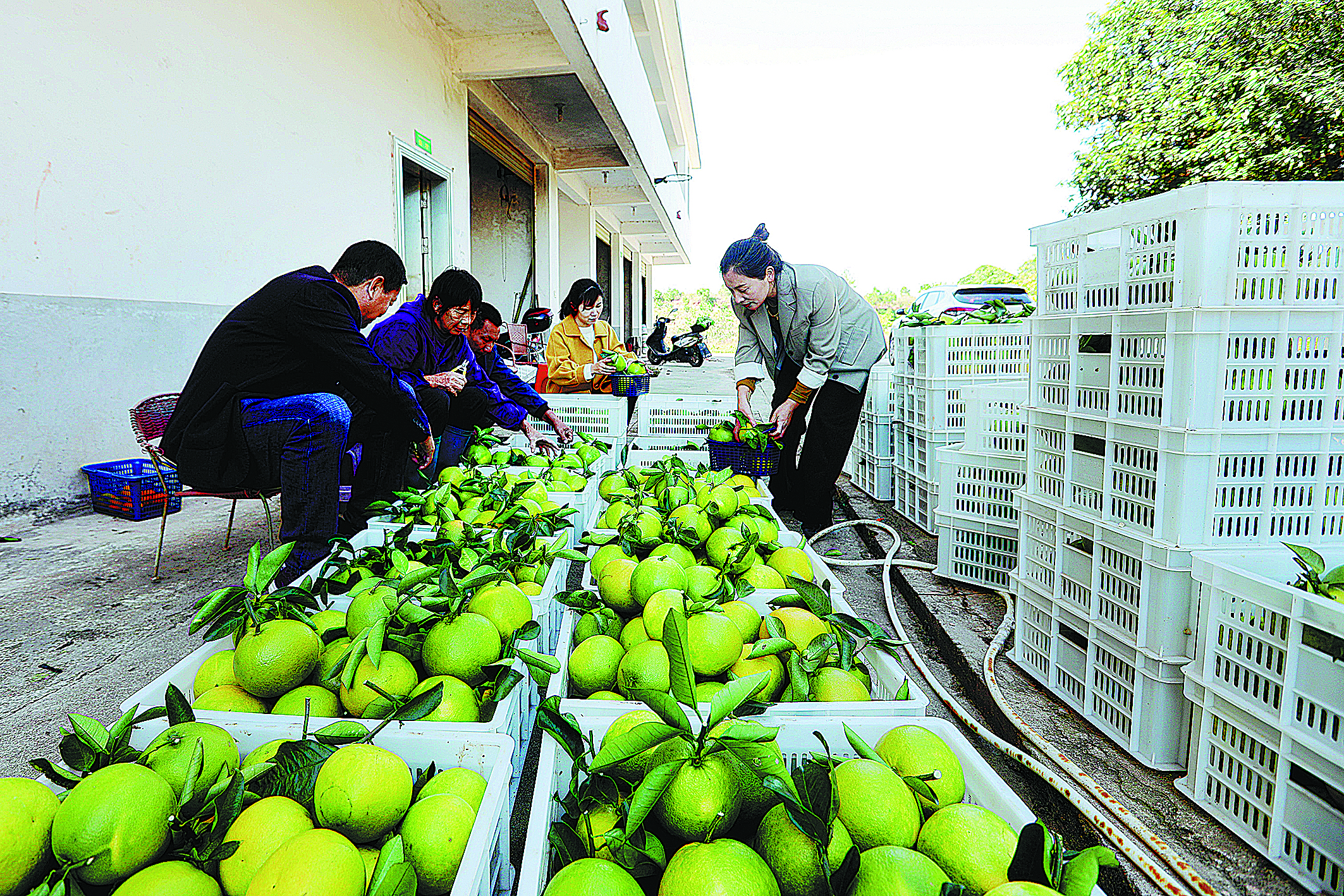
Farmers harvest grapefruit in Sanzhou town, Changting, last month. [Photo by GUO YIBIN/FOR CHINA DAILY]
Big ambitions
When Ma Xuemei married a man from Changting in 1986, she thought she could make a fortune by farming the rich soil in the mountainous county, which is renowned for its subtropical climate and heavy rainfall.
However, the young woman from Qingdao, a coastal city in Shandong province, didn't expect the rain to wash away the soil and plants instead of nourishing them.
"I knew nothing about the water and soil loss. When my husband told me that his hometown had abundant farming resources, including rich, red soil, I thought it would be arable land. Instead, it turned out to be barren," the 58-year-old recalled.
In the 1990s, Ma and her husband returned to Changting from Fuzhou, capital of Fujian, where they worked odd jobs because they didn't have any employment skills that would support them and pay for their children's education.
"We planned to plant trees on our mountain land, but some experienced farmers told us that would be impossible due to the water and soil loss that had lasted many decades," Ma said.
As far back as 1942, Zhang Mutao, an official responsible for measures to alleviate the problem of erosion, wrote in his work summary: "The mountains of Changting are all red, shining like blood … There are no insects, no rat trails, no roosting birds. Nothing but a miserable silence, always accompanied by the destroyed spirit of the mountains."
According to the local government, remote sensing data in 1985 showed that the county had about 98,000 hectares subject to soil erosion, accounting for 31.5 percent of its land area.
Meanwhile, the county's soil and water conservation center said that when soil erosion is at its worst, rainfall can cut hillsides into fragments that will develop into larger gullies over time.
Along the broken and barren mountains, rainwater will carry sediment into farmland and block waterways at the foot of the mountains, causing floods and damaging crops, it added.
In light of those conditions, Ma and her husband decided to try to raise chickens. However, most of their birds died due to the lack of water and the high land temperatures, which could reach 70 C.
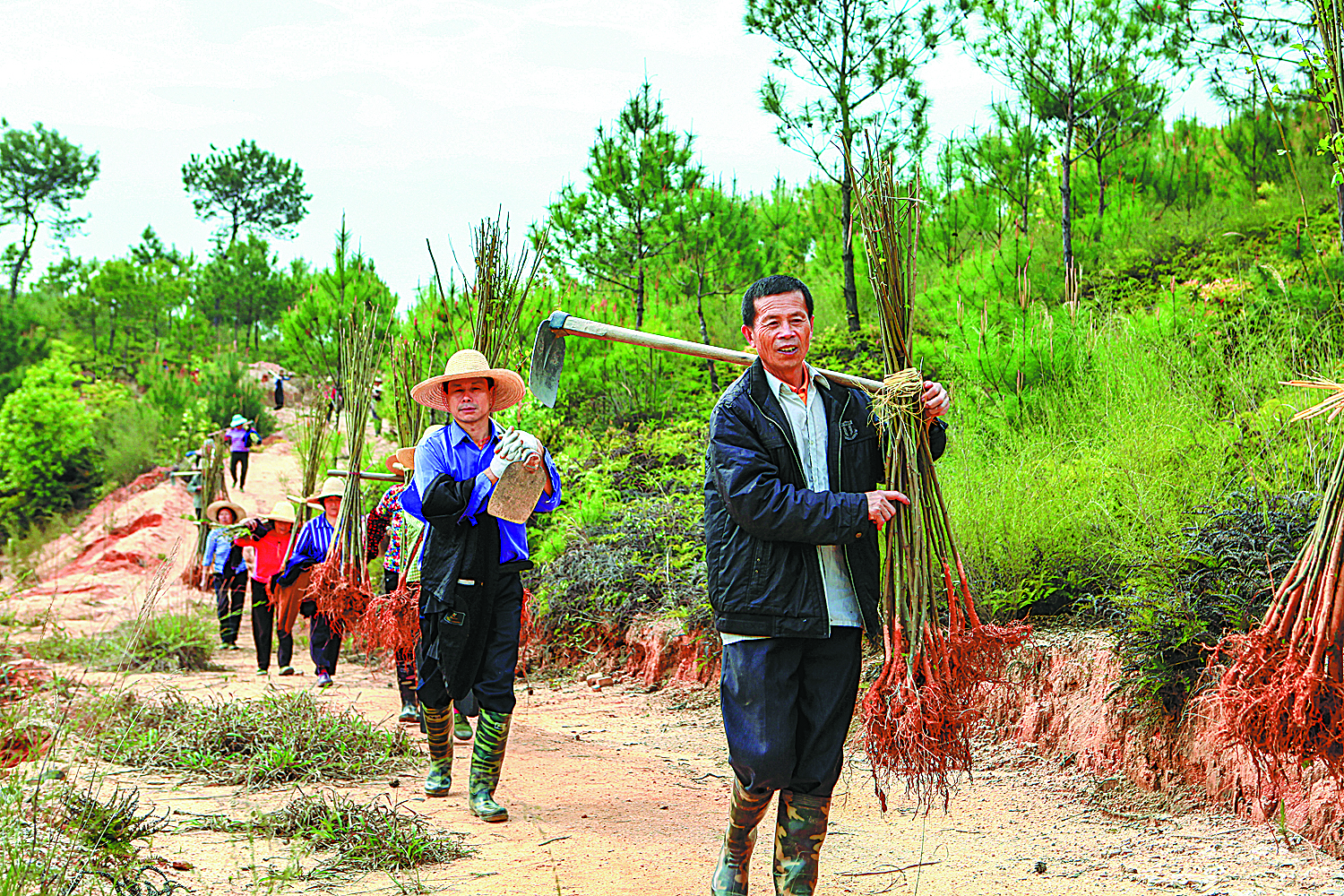
People prepare to plant trees to control water and soil loss in the county last month. [Photo by QIU JIARUI/FOR CHINA DAILY]
New approach
In 1999, the couple decided to try growing chestnut trees. "On the television news, I saw that people had managed to plant grapes, even on stony mountainsides, by making holes in the rock and filling them with fertile soil. I felt I could also make that method work," Ma said.
However, continuous rain washed away the soil and sand, ripping most of her saplings out of the sodden earth which never drained properly.
"The rain not only took away my trees but also my money," she said, noting that she and her husband had invested all their savings, about 90,000 yuan, and borrowed more than 200,000 yuan.
"Some villagers said bad things about me. They said they felt sorry for my husband for marrying a woman who wasted money on barren mountains. Despite that, I refused to give up because I had put so much energy and money into my career," Ma said.
When she contacted experts from the local soil and water conservation center, they advised her to dig drainage ditches on the top of the mountain and build barriers at the foot to retain the water.
Later, under the guidance of local experts, she planted a kind of thick grass that helped retain the soil and water.
Ma also bought a suction truck and collected human waste from toilets in schools and other institutions. The fertilizer helped her trees bear fruit.
Now, she rents 32 hectares of mountainous land, where she keeps thousands of pigs and has also cultivated many chestnut trees.
This year, she planted about 7,000 new orange trees. Her annual income is about 1.8 million yuan ($283,000).
"Having seen my yields, some other villagers began to follow my lead," Ma said.
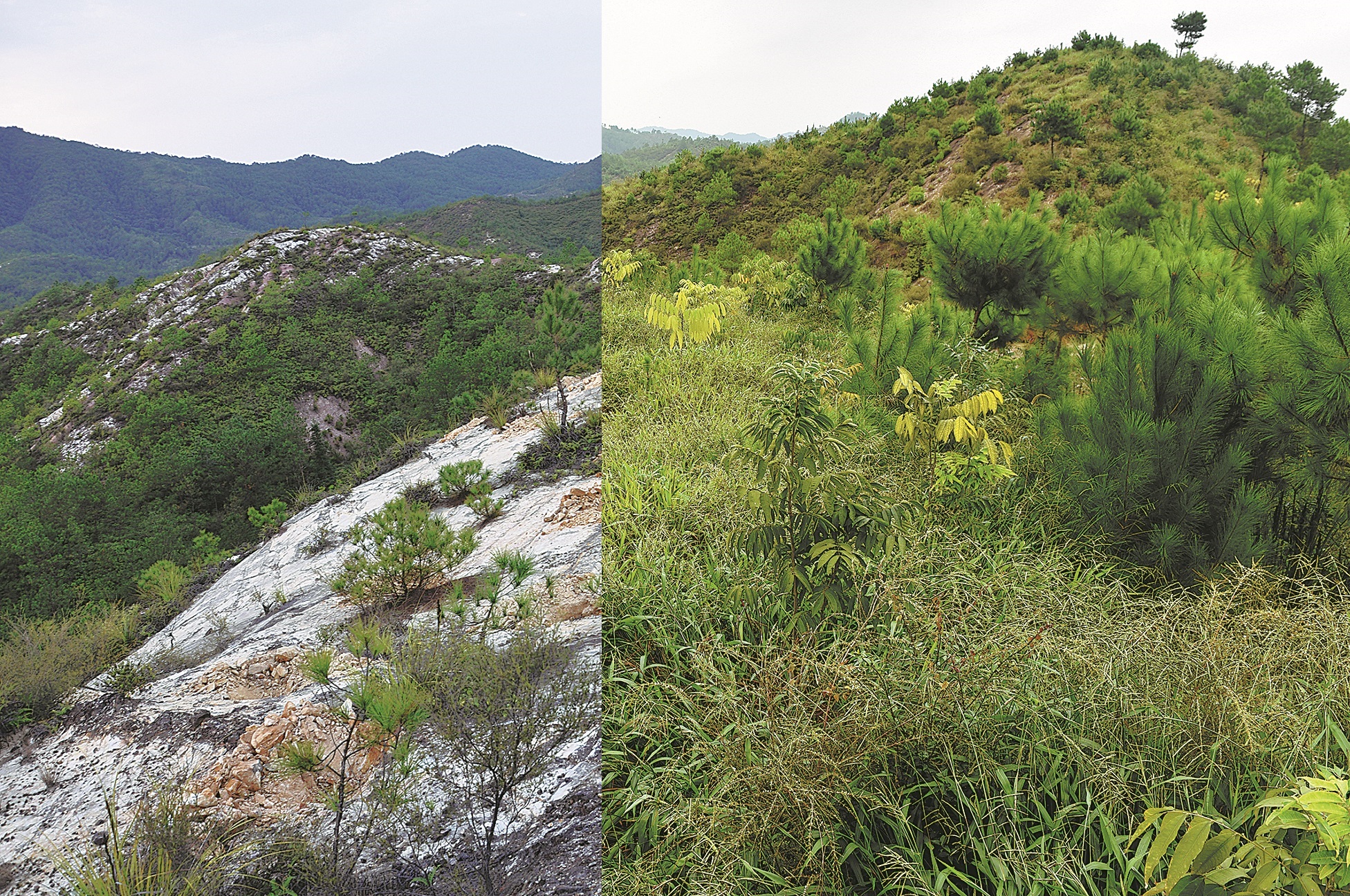
Comparisons of an area in Nanshan town, Changting county, Fujian province, taken in January 2012 and September last year, before and after alleviation treatment. [Photo/CHINA DAILY]
Government assistance
Over the past two decades, the central and local governments have provided many millions of yuan to help solve the county's issues.
In 2000, Xi Jinping, then deputy secretary of the Fujian Provincial Committee of the Communist Party of China and acting governor of the province, approved the allocation of special funds-10 million yuan annually for eight consecutive years-to alleviate Changting's problems.
The money was used to provide direct treatment for the problems as well as pay subsidies to the farmers.
Shen Tengxiang, former Party chief of the county's Nankeng village, said the villagers felled trees for firewood around 2000, which contributed to deforestation and further soil loss.
However, local government subsidies helped them buy coal, which greatly eased the situation.
"We also introduced a rule that anyone who felled trees would be punished by having their pigs-a family's major source of income-killed and the meat handed out to other villagers free of charge," she said.
"The problem had not been solved at the roots, though, so we needed to heal the infertile land and develop agriculture."
To encourage the villagers to plant ginkgo trees, she planted them on her own land first. Having achieved good results, she then led the way in the cultivation of strawberries and construction of tourism facilities.
Last year, Nankeng's per capita income rose to 21,300 yuan, from 600 yuan in 1996.
By the end of last year, only about 21,000 hectares in Changting still had soil erosion problems, a decline of about 78 percent, according to the local government.
Cao Wenhong, chief engineer at the China Institute of Water Resources and Hydropower Research who studies soil and water conservation, said Changting has succeeded in protecting the environment and creating wealth for its residents.
"Changting's approach to treating soil erosion can act as a model both at home and abroad, not only because of the techniques used but also governance measures," he said.
"Water loss and soil erosion are problems that can only be solved by long-term efforts," he added.
"Thanks to the central and local governments and people's dedication to improving the land, they were able to work together to eradicate the problems."
Chen Ye contributed to this story.

